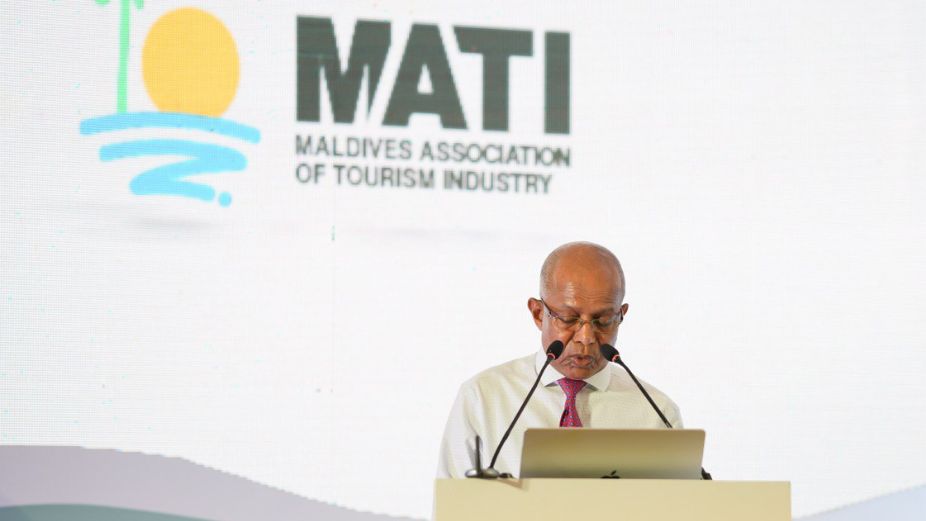
The Maldives Association of Tourism Industry (MATI) held its 35th Annual General Meeting at Kurumba Maldives, where Secretary-General Ahmed Nazeer highlighted the industry’s significant contributions to the Maldivian economy while addressing key challenges ahead.
Tourism remained the largest contributor to GDP in 2024, continuing to drive job creation and government revenue. Last year, for the first time, international tourist arrivals surpassed two million, marking a 9% year-on-year increase. Total bed nights rose by 3%, with 172 operational resorts recording 11 million bed nights, achieving an overall occupancy rate of 71.2%. Peak occupancy reached 95% in February, while the lowest was recorded at 50% in June.
Despite this success, the industry faced multiple challenges, including an increase in the Tourism Goods and Services Tax (T-GST) in 2024 and again in 2025, a compulsory 10% service charge, higher Green Tax rates, and rising airport-related costs that have contributed to increased airfares.
In 2024, tourism generated USD 5.6 billion in travel receipts, a 12.4% increase from the previous year. Resorts accounted for USD 4.5 billion, representing 83.6% of total receipts, followed by domestic air transport, duty-free sales, local travel agents, and guesthouses. The tourism sector also contributed 95% of the government’s USD 1.06 billion revenue, with USD 620 million from T-GST, USD 123.6 million in land rent, and USD 73 million in airport development fees.
A key concern raised was the country’s rising government debt, which reached MVR 120 billion by the end of Q3 2024, increasing by 3% from the previous quarter. MATI highlighted that the revenue generated by the industry plays a vital role in reducing national debt and called for greater fiscal responsibility to ensure funds are allocated efficiently.
The meeting also emphasised the importance of renewable energy investments in tourism. Over 70 resorts have installed solar photovoltaic (PV) systems, contributing 61% of the country’s renewable energy capacity. MATI stressed the need for further investment in sustainable solutions such as floating solar PV and battery storage to reduce dependence on imported fuel.
Looking ahead, the association reaffirmed its commitment to working alongside the government to ensure stability and regulatory support for the tourism sector. MATI also acknowledged the efforts of the Ministry of Tourism and Environment and MMPRC in promoting the Maldives as a world-class destination.
As the Maldives moves into 2025, MATI urged stakeholders to prioritise innovation, unity, and sustainability to maintain the industry’s momentum and safeguard its future.












